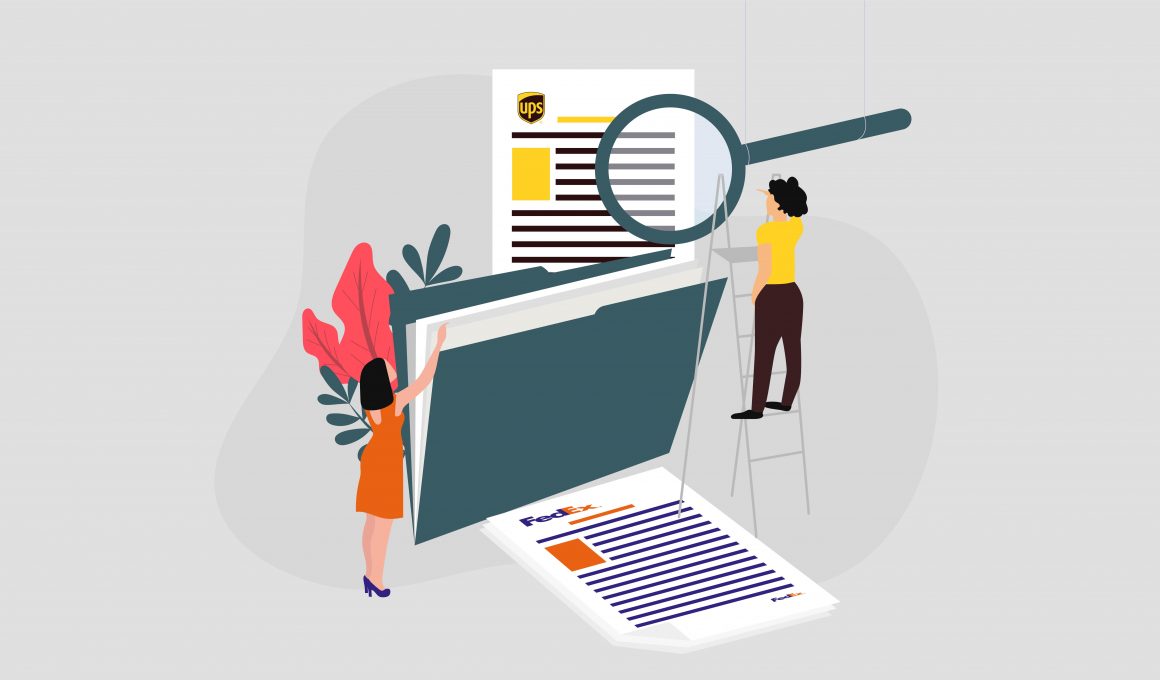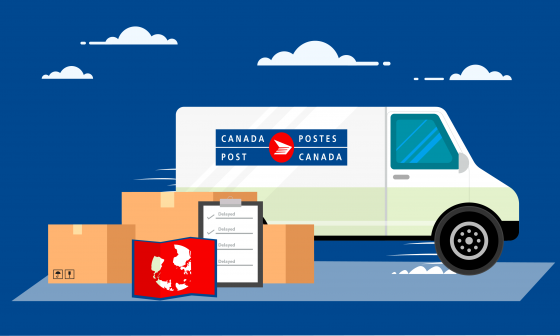If you have been living under a rock, then it is worthwhile to mention that FedEx and UPS have announced and incorporated ( No delays there!) the revised shipping charges for 2019.
Although this rate increase was expected to increase the shipping spend by a mere 4.9% on an average, the ground reality is very different. A retailer on the wrong side of the scales may see up to 40% increase in their shipping expenditure.
Thanks to the spike in the residential delivery charges and delivery area surcharges. Few retailers are seeing an increase up to 20% on their shipping costs compared to last year.
Retailers are starting to lose control of their shipping expenditure that is largely mandated by the duopoly of FedEx and UPS. The first step in taking charge of shipping expenditure is to audit FedEx and UPS invoices thoroughly.
Let’s understand in depth the importance of auditing your FedEx and UPS invoices in 2019 with the new charges in place.
To be freed from the clutches of confusing charges:
With the new accessorial and ground rates, FedEx and UPS invoices just got more complex and unwieldy. The latest revision has made it almost impossible to comprehend the charges applied. Earlier you may have had no problem in forking a 3-4% overcharge baked into your invoice.
But not anymore.
Heaping another layer of 10% -12% rate increase on your shipping expenditure will hurt your bottom line.
What is shocking is that the first quarter performance review reports indicate that the increase in rates did not result in any improvement in the quality of service offered by FedEx or UPS.
FedEx and UPS average rate of delivery delays
Last quarter 2018 performance vs First Quarter 2019 performance
FedEx
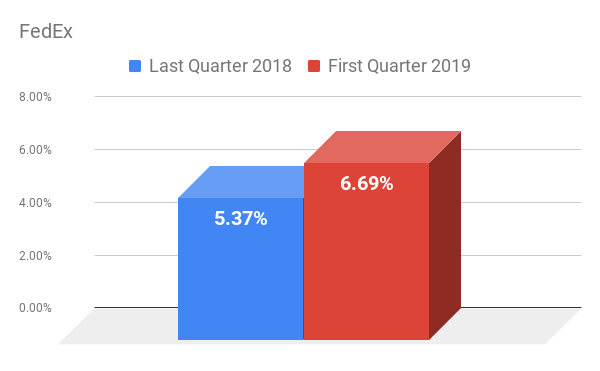
UPS

As observed in the graph, service failures have only increased since last year. It simply does not make any sense to pay more for the same service.
Non Uniform Charges Add Complexity
Shipping rates vary widely from one business to another. Even if we are to find an almost identical shipping profile in terms of the zone, volume or industry, there is at least an 11%-12% difference in the shipping charges.
It is clear that the percentage of shipping discount heavily relies on negotiation prowess of a company. Checking for SLA and Tariff rate compliance can be quite a daunting task. Businesses settle for spreadsheets or other primitive software turning the auditing process into a mundane grunt work. Even so, it’s impossible to comprehend if their charges align with that of rates mentioned in their service level agreement with shipping partners.
There is more than what meets the eye
How tough is it to spot an error on your invoice?. A duplicate charge here or an incorrect surcharge there…a child’s play isn’t it? Well, think again.
- Is your discount calculated and applied correctly?
- Are there errors in dim-weight pricing calculation?
- Did your customers receive their packages on time? If not did you receive a refund?
- If you don’t receive FedEx or UPS refunds, are you getting a hefty discount in exchange for waiving your MBG?
- How accurate is the accessorial charge calculation?
- Are there any mistakes in the application of third-party charges?
- Does your base rate tariff match the terms in your SLA?
To stop overpaying on your invoices, it is important to conduct an in-depth audit that exposes each and every error. An effective audit will not only highlight anomalies but also sheds light on the possible root-cause analysis.
There are more than 50 carrier errors that can infest your shipping invoices.
The most common errors that are eligible for money-back are listed here:
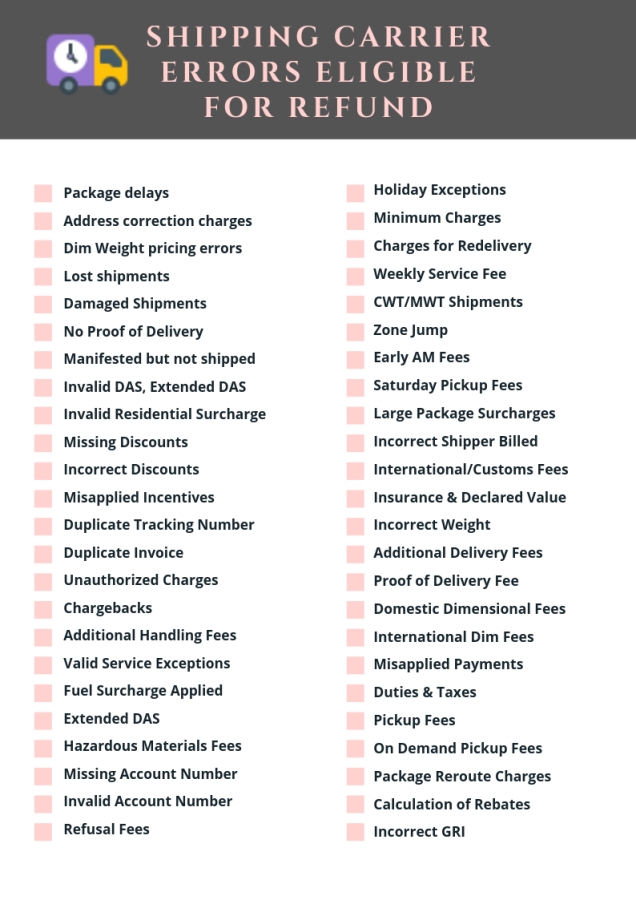
Most businesses audit their invoices at the end of every quarter. But businesses are usually invoiced on a weekly or monthly basis. Hence, invoices need to be continuously monitored and scrutinized. Almost all claims come with an expiry date.
Retailers have to adopt a systematic process to spot over-the-threshold charges and respond instantly. This ensures that they do not miss out any refunds.
To Dispute or Not
Even if retailers manage to cross the hurdle of identifying all the carrier errors, disputing them and claiming refunds proves to be a major stumbling block. Global carriers such as FedEx and UPS have all the shipping information and the relevant technology to process shipping refunds automatically. However, they make the process of disputing errors unnecessarily circuitous. This discourages most businesses from claiming for the money that is rightfully theirs.
Sample this: Here is a snapshot of the guide to claiming FedEx refunds.
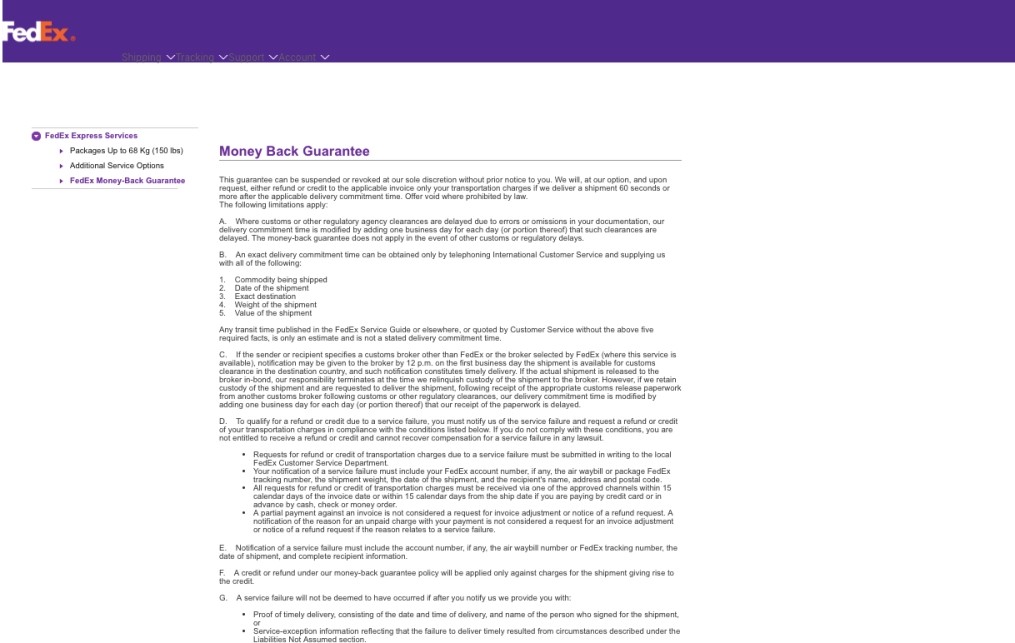
To read more about the money-back guarantee check out FedEx guarantees
First, you have to sift through never-ending terms to validate the claims that you are filing. And then claims are required to be raised for each and every dispute independently. Not to forget the process for disputing these claims is cumbersome and time-consuming.
Did I mention that if not done correctly spurious claims are penalized?
Over a third of claims filed by businesses may not even be eligible for refunds. Since evaluating and authenticating disputes increases the overhead expense to shipping carriers, they either
- Ignore all submissions from the business
- Refuse refunds for eligibles ones too
- Penalize wrong claim filed
This places an additional burden on your resources.
It requires an army of resources with boundless time to systematically uncover and dispute hidden errors and overcharges with high precision.
Tap Into Automated Audit Solution
An easy remedy to this situation is leveraging technology for auditing your FedEx or UPS shipping invoices.
A data-driven algorithm can wrangle raw shipping data into analytics. This can help you measure key shipment delivery performance metrics within seconds.
An effective shipping invoice audit can guide you towards
- Choosing the right shipping carrier,
- Identifying the optimal shipping method
- Addressing critical last mile delivery issues.
Logistics manager can draw actionable insights that directly impact their supply chain strategies and decision associated with last-mile logistics.
A technology backed auditing service can provide your business with a holistic analysis of your last-mile delivery while you continue to focus on growth.
